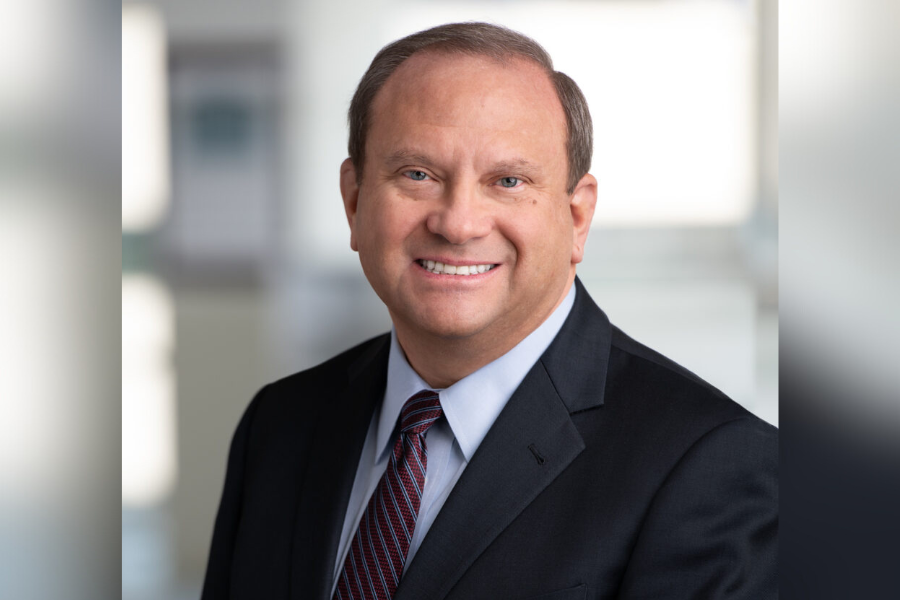

Federal agencies including the Department of Labor could be blocked in some cases from issuing new rules under legislation passed Tuesday by the House.
But the measure's ability to halt the DOL’s fiduciary rule is highly unlikely.
The legislation, House Bill 357, the Ensuring Accountability in Agency Rulemaking Act, would require that nearly all proposed rules be signed by officials who are appointed by the president and confirmed by the Senate. It passed on a near party-line basis, with three Democrats voting in favor, along with the Republican majority.
Supporters of the bill pointed to a glut of rules proposed every year by career officials, particularly at the Department of Health and Human Services. It would prevent workers who serve in an acting capacity from issuing new rules, except in emergencies.
As industry group the Insured Retirement Institute noted, that could include acting Labor Secretary Julie Su, who has been filling the role since March, amid the departure of Marty Walsh, who stepped down to accept a job as executive director of the National Hockey League Players’ Association. Although President Joe Biden nominated Su for the job, it became clear that she lacked at least one vote from a Democrat necessary for her confirmation in the Senate.
Rather than nominating someone else, Biden opted to keep Su in the acting labor secretary role indefinitely. While Republicans have opposed that decision, the Government Accountability Office vouched for its legality, as appointees who step in to fill vacancies for officials to step down are covered by The Federal Vacancies Reform Act of 1998.
Under Su, the DOL proposed the latest iteration of its much-anticipated fiduciary rule, hearings on which coincidentally began Tuesday.
The House vote on the Ensuring Accountability in Agency Rulemaking Act “is another example of members of Congress expressing their concerns about the harm the U.S. Department of Labor’s proposed fiduciary rule for investment advice will cause to millions of America's workers and retirees,” IRI chief government and political affairs officer Paul Richman said in a statement. “The proposed rule will not only cause no less harm to workers and retirees' access to advice [than the vacated 2016 DOL rule] but also will now impact their choice of financial products that can provide protected and guaranteed lifetime income to sustain them throughout their retirement years.”
The insurance industry is staunchly opposed to the DOL’s proposal because the rule would bestow fiduciary status on many who make one-time recommendations to roll 401(k) assets into annuities.
The House bill would almost certainly have no effect on the DOL’s ability to move forward with the proposal for a couple reasons, said Bradford Campbell, partner at law firm Faegre Drinker and former head of the DOL’s Employee Benefits Security Administration.
First, the current head of EBSA, Lisa Gomez, is authorized to sign off on proposed rules – and Gomez was confirmed by the Senate, Campbell noted. Secondly, Su was confirmed by the Senate for her permanent role as deputy secretary at the DOL, so it is unclear whether the provisions in the bill would apply to her in her capacity as acting secretary, he said.
And critically, the legislation stands smaller odds of passage in the Senate, and it would all but certainly be vetoed by Biden if it made its way to his desk.
Most likely, the bill, which had also been submitted in 2021, is aimed at blocking proposals by career bureaucrats at other agencies, Campbell said.
In hearings Tuesday, House Republicans cited a need to rein in excessive and burdensome new regulations, while Democrats called the legislative effort an attempt to prevent federal agencies from doing their basic jobs.
Rep. Michelle Fischbach, R-Minn., said the bill would lessen the powers of career civil servants “who are not accountable to taxpayers.”
Meanwhile, Rep. Mary Gay Scanlon, D-Pa., called the bill “misguided and marginal.”
It is “yet another attempt by MAGA Republicans to derail the federal rulemaking process,” Scanlon said. “Bills like this would create a bottleneck in the government’s operations … Our agencies would be obstructed from doing important work.”
If it were enacted, the legislation would also give the Senate more incentive to block nominations for unfilled agency roles, further politicizing the process, Democrats said. If roles remained unfilled, agencies would have little power to make new rules, they said.
The sponsor of the bill, Rep. Ben Cline, R-Va., noted that the legislation would allow acting-capacity officials to issue rules in emergency situations, such as where regulations are necessary to protect public safety and security.
However, Democrats noted that Congress already has several ways of reversing or suppressing regulatory efforts, including the Congressional Review Act, which allows the legislature to reverse regulations that are passed near the end of presidential administrations.

Rajesh Markan earlier this year pleaded guilty to one count of criminal fraud related to his sale of fake investments to 10 clients totaling $2.9 million.

From building trust to steering through emotions and responding to client challenges, new advisors need human skills to shape the future of the advice industry.

"The outcome is correct, but it's disappointing that FINRA had ample opportunity to investigate the merits of clients' allegations in these claims, including the testimony in the three investor arbitrations with hearings," Jeff Erez, a plaintiff's attorney representing a large portion of the Stifel clients, said.

Chair also praised the passage of stablecoin legislation this week.

Maridea Wealth Management's deal in Chicago, Illinois is its first after securing a strategic investment in April.
Orion's Tom Wilson on delivering coordinated, high-touch service in a world where returns alone no longer set you apart.
Barely a decade old, registered index-linked annuities have quickly surged in popularity, thanks to their unique blend of protection and growth potential—an appealing option for investors looking to chart a steadier course through today's choppy market waters, says Myles Lambert, Brighthouse Financial.
